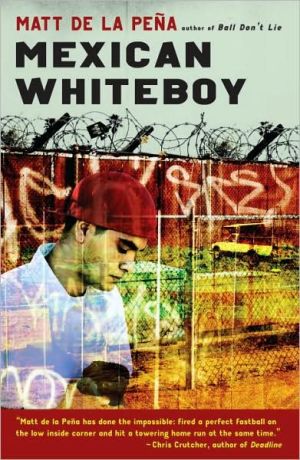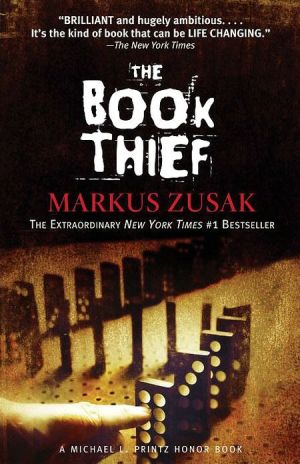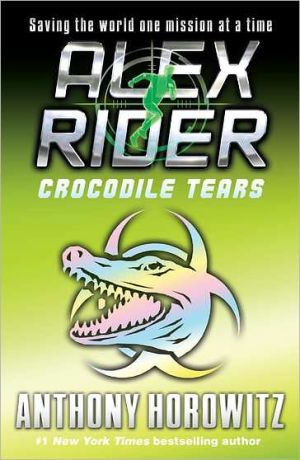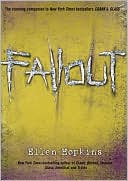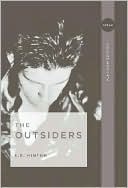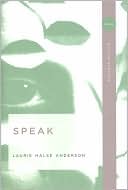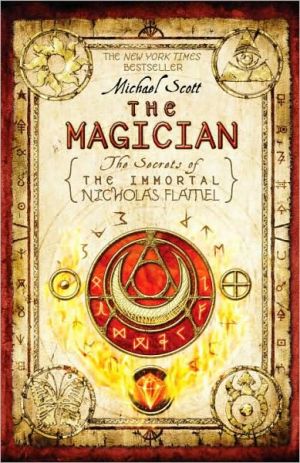Mexican WhiteBoy
Sixteen-year-old Danny searches for his identity amidst the confusion of being half-Mexican and half-white while spending a summer with his cousin and new friends on the baseball fields and back alleys of San Diego County, California.
Search in google:
Danny's tall and skinny. Even though he’s not built, his arms are long enough to give his pitch a power so fierce any college scout would sign him on the spot. Ninety-five mile per hour fastball, but the boy’s not even on a team. Every time he gets up on the mound he loses it.But at his private school they don’t expect much from him. Danny’s half Mexican. And growing up in San Diego means everyone else knows exactly who he is before they find out he can’t speak Spanish, and before they realize his mom has blond hair and blue eyes. And that’s why he’s spending the summer with his dad’s family. To find himself, he might just have to face the demons he refuses to see right in front of his face.KLIATTHalf-Mexican, half-white, Danny feels he's too brown to fit in at his snooty San Diego prep school, but when he goes to spend the summer with his sassy cousin Sofia and his father's family in old-town National City, he feels too pale. There's this pretty girl there, but she speaks very little English. Danny doesn't speak Spanish, and so he tries to talk as little as possible; and he cuts himself, because often only pain feels real to him. He's intimidated at first by the neighborhood kids, especially tough-talking Uno, who's half-African American and half-Mexican. Uno badly wants to make some money so he can get to go live with his dad. Baseball is the great equalizer: Danny is an amazing pitcher, though he lacks control. Can he pull it together to pull off hustles with Uno and help his new friend out? There's much more going on here than just baseball: some surprising realizations about fathers, family, and street violence, related in street slang (with some obscenities) and terrific dialogue. de la Pena, author of Ball Don't Lie, makes it all feel very real. This is a winner, just like Danny, in the end. Reviewer: Paula Rohrlick
Dressed in a well-worn Billabong tee, camo cargo shorts and a pair of old-school slip-on Vans, Danny Lopez follows his favorite cousin, Sofia, as she rolls up on the cul-de-sac crowd with OG swagger.\ A bunch of heads call out to her, "Hey, Sofe!" "Yo, girl!" "There she is!" and wave.\ Sofia waves back, pulls Danny by the arm toward a group of girls sitting on a blanket in an uneven semicircle. "Oye putas," she says. "Yo, this my cousin Danny I was telling you about. He's gonna be staying with me for the summer." She smiles big—proud, Danny thinks. "Yo, cuz, these are my girls." She points them out and rattles off names: "Carmen, Raquel, Angela, Bee, Juanita, Flaca and Guita."\ "Hey," the girls singsong in unison.\ Danny nods with a shy smile, aims his eyes at the asphalt. He feels the heat of their stares and for a second he wishes he could morph into one of the ants zigzagging in and out of tiny crevices in the street. Their little lives, he thinks, totally off the radar.\ Danny's sixteen, a shade over six foot and only a year younger than Sofia, but unless he's on a pitching mound he feels like a boy. He's long and thin with skinny arms hanging down skinny thighs—his arm length the reason he can fire a fastball so hard. His shoulders are wide, but his muscles have yet to catch up. Sometimes when he sees himself in a mirror it looks like his shirt is propped up by an upside-down coat hanger. Not a human body. Doesn't even look real.\ And Danny's brown. Half-Mexican brown. A shade darker than all the white kids at his private high school, Leucadia Prep. Up there, Mexican people do under-the-table yard work and hide out in the hills because they're in San Diego illegally. Only other people on Leucadia's campus who share his shade are the lunch-line ladies, the gardeners, the custodians. But whenever Danny comes down here, to National City—where his dad grew up, where all his aunts and uncles and cousins still live—he feels pale. A full shade lighter. Albino almost.\ Less than.\ "And just so you know," Sofia adds, "Danny ain't no big talker, all right? He's mad smart, gets nothin' but A's at the best private school in San Diego, but don't get your chones in a bunch if you can't never pull him into a convo." Sofia looks prettier than Danny remembers. Less of a tomboy. Her hair long now, makeup around her eyes.\ Carmen clears her throat, says: "He don't need to talk to give me no deep-tissue massage." She gives Danny an exaggerated wink.\ "Ain't need no words for us to soak in a nice Jacuzzi bath together," Flaca says. She reaches out, puts her hand on one of Danny's Vans. "We can just sit there, Papi. Backs against them jet thingies. Take turns sippin' a little white Zin and shit. How's that sound, beautiful?"\ Danny gives her a polite smile, but inside he's shrinking. He's trying to suck back into his shell, like a poked and prodded snail.\ Behind his back he grips his left wrist, digs his fingernails into the skin until a sharp pain floods his mind, makes him feel real.\ Angela and Bee comb Danny over with their almond-shaped eyes, devour his out-of-place surfer style like a pack of rabid dogs. Danny cringes at how different he must seem to his cousin's friends. They're all dark chocolate-colored, hair sprayed up, dressed in pro jerseys and Dickies, Timberlands. Gold and silver chains. Calligraphy-style tats. Danny's skin is too clean, too light, his clothes too soft.
\ KLIATT\ - Paula Rohrlick\ Half-Mexican, half-white, Danny feels he's too brown to fit in at his snooty San Diego prep school, but when he goes to spend the summer with his sassy cousin Sofia and his father's family in old-town National City, he feels too pale. There's this pretty girl there, but she speaks very little English. Danny doesn't speak Spanish, and so he tries to talk as little as possible; and he cuts himself, because often only pain feels real to him. He's intimidated at first by the neighborhood kids, especially tough-talking Uno, who's half-African American and half-Mexican. Uno badly wants to make some money so he can get to go live with his dad. Baseball is the great equalizer: Danny is an amazing pitcher, though he lacks control. Can he pull it together to pull off hustles with Uno and help his new friend out? There's much more going on here than just baseball: some surprising realizations about fathers, family, and street violence, related in street slang (with some obscenities) and terrific dialogue. de la Pena, author of Ball Don't Lie, makes it all feel very real. This is a winner, just like Danny, in the end. Reviewer: Paula Rohrlick\ \ \ \ \ VOYA\ - Matthew Weaver\ Parallel lives intersect as Danny Lopez spends the summer with his Mexican father's relatives, although he does not really fit in because he is half-white and does not speak a word of Spanish. Almost immediately, Danny comes into conflict with African American Uno during a baseball mishap. Slowly before readers' eyes, both boys' worlds develop. Senior, Uno's father, has found religious reformation and is trying to impart wisdom onto his son, whereas Danny plans to fly farther south and track down his dad in Mexico. De la Pe±a does an excellent job of showing readers the potential his characters possess and what they will have to pursue in the days ahead. Danny's cousin Sofia is Uno's romantic interest and she also seems on the cusp of making strong, positive choices for herself. Readers come to care for both Danny and Uno as they finally come together through the sport they both love. Everyone in the book faces mountains of obstacles, and in a fantastic move by the author that is not cloying or obvious, they also have the temerity to overcome them. De la Pe±a makes their world feel real by not shying away from the harsh realities. Readers see themselves in Danny, Uno, and Sofia, whether or not they share their backgrounds. In the end, they find themselves wanting the characters to succeed. Reviewer: Matthew Weaver\ \ \ Children's Literature\ - Rosa Roberts\ Regardless of their gender, adolescent readers will thoroughly enjoy this book. The author is a phenomenal storyteller. The characters are dynamic and authentic, so readers can easily relate to them. The dialogue enables readers to empathize with the struggles of the main character, Danny. Danny yearns to be accepted by both of the two worlds he is caught between, that of his white mother and classmates and that of his Mexican father. Out of this longing, Danny hopefully reunites with his father while on summer break from the private boarding school where he does not fit in. Instead of opting to be with his mother and her new boyfriend in San Francisco, Danny heads to San Diego, National City, with his father's relatives. Through his experiences with his father's side of the family, Danny comes to terms with the reasons behind his father's absence. Danny's talent as a great baseball pitcher is his salvation as he gains strength, confidence, and self-awareness. This book is a compelling read, and adolescents will not be disappointed with the themes of acceptance, friendship and multiculturalism. Reviewer: Rosa Roberts\ \ \ \ \ School Library JournalGr 9 Up\ No matter where he lives, 16-year-old Danny Lopez is an outsider. At his private high school in wealthy northern San Diego County, "nobody paid him any attention...because he was Mexican." It didn't matter that he was half white. But when he visits the Mexican side of his family in National City, just a dozen miles from the border, Danny feels "Albino almost" and ashamed. He doesn't even speak Spanish. Rather than learning to blend in, Danny disengages from both worlds, rarely speaking and running his mind in circles with questions about how he might have kept his absent father from leaving the family. He decides to spend the summer in National City, hoping to get closer to his dad's roots and learn how to be "real" and stop feeling numb. Instead, he finds that, by the end of the summer, he has filled the void through unexpected friendship and love. In this first-rate exploration of self-identity, Danny's growth as a baseball pitcher becomes a metaphor for the conflicts he must overcome due to his biracial heritage. Dialogue written in a coarse street vernacular and interwoven with Spanish is awkward to read at first-like Danny, readers are made to feel like outsiders among the hard-edged kids of National City. But as the characters develop, their language starts to feel familiar and warm, and their subtle tenderness becomes more apparent. A mostly linear plot (with occasional flashbacks), plenty of sports action, and short chapters make this book a great pick for reluctant or less-experienced readers.-Madeline Walton-Hadlock, San Jose Public Library, CA\ \ \ \ \ \ Kirkus ReviewsAngry with his Caucasian mother and feeling removed from his Hispanic heritage, 16-year-old Danny decides to spend the summer with his father's relatives in an attempt to re-forge his identity. It's a busy summer-he's both running a pitching scam with Uno, a disillusioned interracial teenager, and falling in love with Liberty, a recently arrived immigrant. Danny's sophomoric plan to find his missing dad reflects a balance between idealism and stupidity, especially since astute readers will quickly deduce the whereabouts of his father. While Danny's self-inflicted wounds are physical manifestations of his identity crisis, de la Pe-a depends too heavily on the absent-parent motif for emotional justification. Danny's internal voice occasionally grates, but the earnest emotions portrayed in his imagined letters to his father easily correct for this. Boisterous adult characters serve as outstanding foils for Danny and his friends, especially Senior, Uno's domineering father, who is given to rodomontade. Though not an out-of-the-park follow-up to 2005's Ball Don't Lie, de la Pe-a blends sports and street together in a satisfying search for personal identity. (Fiction. YA)\ \
